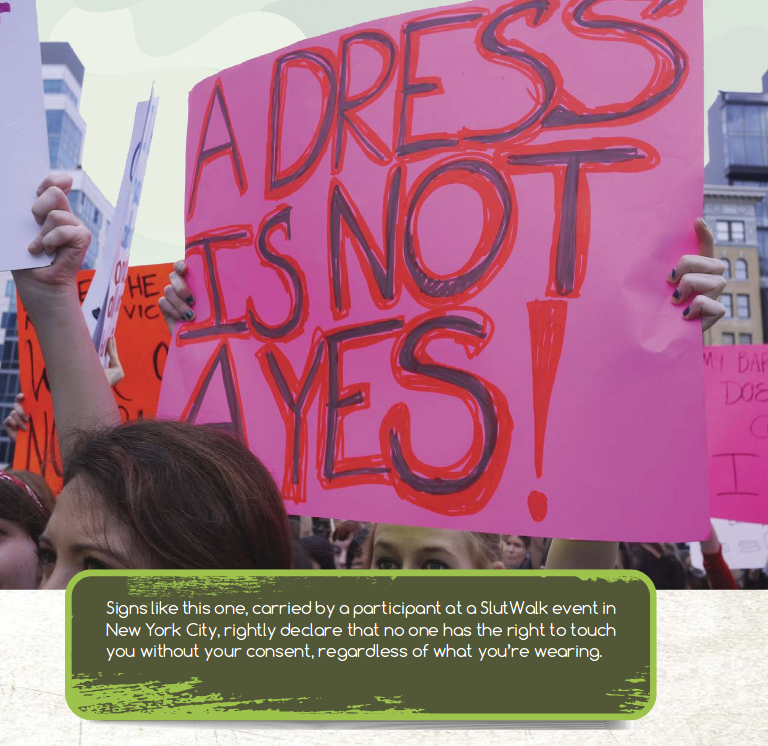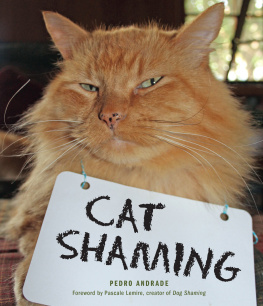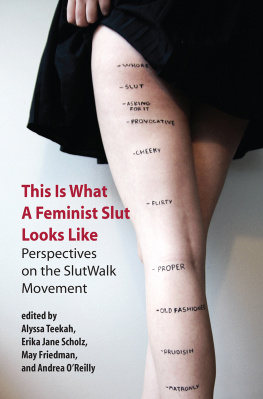Published in 2017 by The Rosen Publishing Group, Inc.
29 East 21st Street, New York, NY 10010
Copyright 2017 by The Rosen Publishing Group, Inc.
First Edition
All rights reserved. No part of this book may be reproduced in any form without permission in writing from the publisher, except by a reviewer.
Library of Congress Cataloging-in-Publication Data
Names: Meyer, Susan, 1986- author.
Title: Combatting slut shaming / Susan Meyer.
Description: New York : Rosen Publishing, 2017. | Series: Combatting shaming and toxic communities | Audience: Grades 7-12. | Includes bibliographical references and index.
Identifiers: LCCN 2015047939 | ISBN 9781508171157 (library bound)
Subjects: LCSH: Shame--Juvenile literature. | Bullying--Prevention--Juvenile literature.
Classification: LCC BF575.S45 M49 2017 | DDC 302.34/3--dc23 LC record available at http://lccn.loc.gov/2015047939
Manufactured in China
CHAPTER 1
CHAPTER 2
CHAPTER 3
CHAPTER 4
CHAPTER 5
I n 2014, Stevie Little was a high school student in North Carolina. She was going about her day as she normally did when she began to hear some ugly rumors. According to the rumors, Stevie had made a sex tape with her boyfriend, who was now showing the video to everyone at school. In an interview with Womens eNews, Stevie explained that her boyfriend shared the video with his English class and it spread from there. Stevie had no idea a video like this even existed! Her boyfriend had actually sexually assaulted Stevie when she was drunk and taken a video, of which she was unaware. She told the school guidance counselor, who in turn told the police. Stevies ex-boyfriend now faces charges for the assault.
However, the story doesnt end there. Stevie didnt just survive an assault; she also faced a huge backlash from her community. Friends and people she trusted all had opinions about the case, and many of these opinions were incredibly hurtful. People called her names, and not just to her face. People in Stevies hometown took to social media-sites like Instagram, Twitter, and Facebook-and posted horrible things. They said that she had wanted the assault to happen and that she was a slut and a porn star. After all that she had already been through, Stevie says being revictimized by the community was almost as traumatic as the assault itself.

What Stevie experienced and what thousands of teens and especially teen girlsexperience each year is called slut shaming. Slut shaming doesnt mean the victim is a slut. Rather, slut shaming is a type of bullying in which a woman is criticized for her real or presumed sexual activity. A woman can be shamed because she has had sex, because of the number of sexual partners she has had, because of the way she dresses, or even just because of rumors about her sexual activity. Using words like whore, slut, and ho regardless of whether they are used in a joking way are all examples of slut shaming.
All types of bullying are toxic, but slut shaming can have particularly nasty consequences. It supports a culture that tries to control womens choices. Calling women names like slut, telling women what they cant wear, or controlling how women can express their sexuality is a problematic part of this culture. All of these actions support the idea that womens sexuality can be possessed by others. This type of culture leads to higher rates of sexual assault. Some people will claim that a victim of sexual assault was asking for it because of the way she dressed or the number of previous sexual partners she has had. This is one of the ways that slut shaming can be incredibly dangerous and harmful. Additionally, victims of slut shaming can become depressed or even suicidal. Women who are slut shamed online face additional harm to their reputations. College admissions counselors and prospective employers can see what people have said about them and form opinions that cant be reversed.
If you have ever been called a slut or made to feel bad about your sexual choices or the way you present yourself, know that you are not alone. The majority of teen girls will experience slut shaming or some form of sexual harassment at some point in their lives. This doesnt make it okay. It is important that people take a stand against slut shaming. This resource will cover the history and background of this issue facing society today as well as some of the important people who are working to combat it.
A BRIEF HISTORY OF SLUT SHAMING
I t can be hard to turn on the television, go to a movie, or walk down the street without hearing the word slut. Comedians, talk show hosts, and people walking in the halls at school all use the word casually. But what does this word really mean? Ask anyone to define the word slut and youll probably get many different answers. Merriam-Webster defines it as a derogatory word for a woman with many casual sex partners.

However, the word has taken on many more subtle meanings in casual use in schools and in the media. A slut can now refer to any woman who does things differently and goes against what is considered normal feminine behavior. A woman can be called a slut for being aggressive. She can be called a slut for having too many male friends. She can be called a slut for dressing a certain way. She can be called a slut because she is considered too flirtatious. She can even be called a slut because she rejected a guy who asked her out. A woman can be called a slut if she has slept with a number of men casually or even if she has never kissed a boy. This can be confusing and frustrating to a young woman, especially because being called a slut has historically had very harsh implications. For example, by being labeled a slut, a woman is also being labeled impure and unclean.
WHATS IN A WORD?
The word slut didn't always mean what it does today. The earliest appearance of the word is in Geoffrey Chaucer's The Canterbury Tales, written in the fourteenth century. Chaucer used the adjective "sluttish" to describe a man who was messy in appearance. In the fifteenth century, the word evolved as a label for women, but it still referred to untidiness and unkemptness and had nothing to do with a woman's sexual activity. Through the centuries the word was used to describe everything from a bad housekeeper to a piece of cloth dipped in fat and used as a candle. It is hard to say when exactly the slang term came to its current meaning, but linguists believe it was in the early twentieth century. Even today, the meaning and connotation of the word continues to grow and change. Some women even want to reclaim the word slutand use it as an empowering word.




















